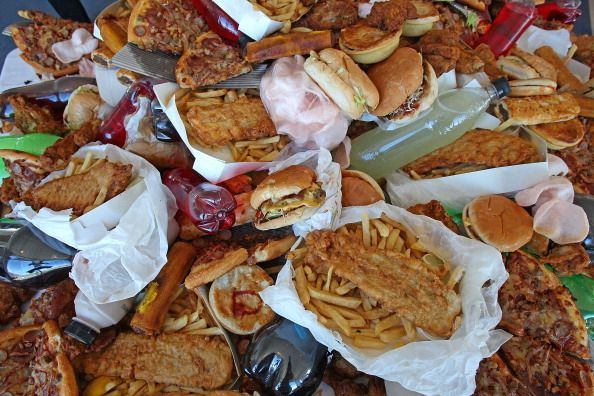Food Addiction In Kids May Be Linked To Parents' Drinking Habits, Study Finds
Parents with a history of alcoholism are looked down upon fearing the influence it would have on their children growing up. A new study has found that there are other ways in which alcoholism in parents can affect children.
Researchers from the University of Michigan have found a link between food addiction in children and their parents' drinking habits. The study, published in the journal Psychology of Addictive Behaviors, found that there is a higher likelihood of children who are born to parents with a history of alcoholism developing food addiction.
"People who have a family history of addiction may be at greater risk for developing a problematic relationship with highly processed foods, which is really challenging in a food environment where these foods are cheap, accessible, and heavily marketed," said Lindzey Hoover, the study's lead author.
Addicted to Food? It Could Be Your Parent’s Fault https://t.co/qcp360au3Z
— SciTechDaily (@SciTechDaily1) August 11, 2022
A sample of 357 U.S. adults participated in the study. They underwent different tests like the Yale Food Addiction Scale 2.0, the Alcohol Use Disorders Identification Test, the Cannabis Use Disorders Identification Test, the Fagerstrom Test for Nicotine Dependence, the E-Cigarette Dependence Scale, the Family Tree Questionnaire, and demographic/self-report body mass index questions through Amazon Mechanical Turk.
In the study, it was found that as many as 1 in 5 people exhibited a clinically significant addiction to highly processed foods. The addiction was marked by a loss of control over intake, intense cravings, and an inability to reduce intake despite negative consequences. A significant proportion of participants who had one or both alcoholic parents showed food addiction.
The study also shed light on some other effects on people with alcoholic parents. These people with food addiction were also more likely to be addicted to intoxicating substances like alcohol, cannabis, tobacco and vaping.
This correlation between food addiction and problematic substance use stresses the need for interventions to reduce both addictive eating and substance use simultaneously. This will lead to better treatment approaches.
"Public health approaches that have reduced the harm of other addictive substances, like restricting marketing to kids, may be important to consider to reduce the negative impact of highly processed foods," Hoover added.
Food items like ice cream, chocolate, pizza, and fries, have high levels of refined fats and carbohydrates. The excessive intake of these highly processed food and addictive substances is the leading cause of avoidable death in the modern world.
The processed foods taste good and are inexpensive to buy, which draws people to them. However, they have insane amounts of added sugar and also contain artificial ingredients. To make things worse, they provide little to no nutritional value and are low in fiber.
It is common knowledge that these food items have very harmful effects on the body. In a separate large study, of almost 20,000 adults, it was found that eating more than four servings of processed food daily increased the risk of all-cause mortality. Additionally, for each extra serving, the risk increased by 18 percent.

© Copyright IBTimes 2024. All rights reserved.




















